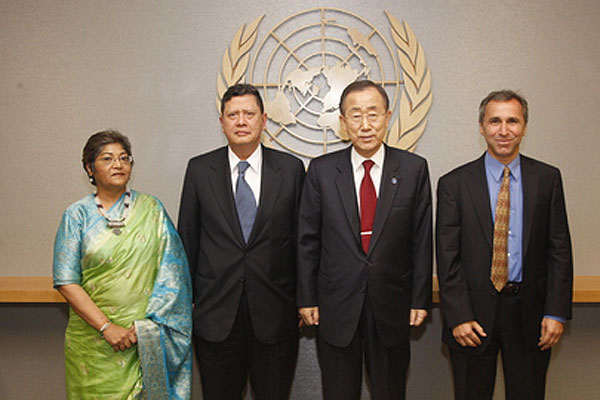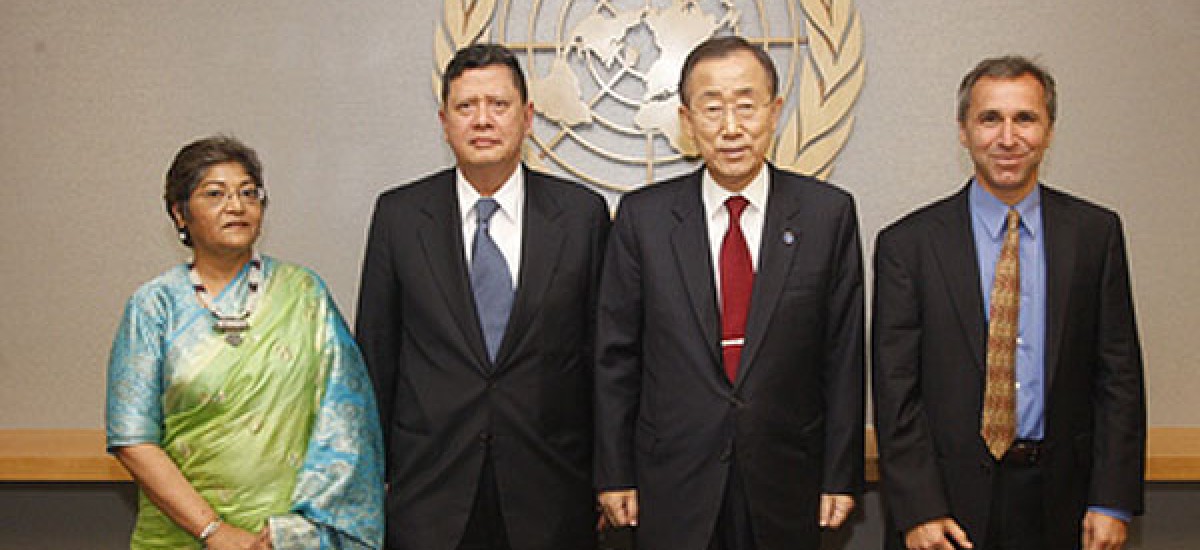
Media and advocacy groups make mistakes. It’s true. The reason for the errors can vary from simple human error, time constraints resulting in insufficient research to subtle manipulation of facts and wording to push an agenda.
Once a mistake has been pointed out, most reputable organisations will publish an acknowledgement along with the correction. Less reputable organisations may ignore the error or correct the error without any acknowledgement. How organisations deal with errors are a great indicator of the quality of the publication.
The United Nations Secretary-General, Ban Ki-moon, appointed an advisory panel to report on the final stages of Sri Lanka’s separatist war. The Darusman report was published in April and human rights advocacy groups, including Amnesty International, International Crisis Group and Human Rights Watch, initiated a controversial media campaign accusing Sri Lanka of war crimes.
The most glaring error propagated by this media campaign is the assertion that there was “credible evidence” of crimes. There was not. The Darusman report states clearly that it found “credible allegations” of crimes. Simply, evidence is required to prove an allegation to be true. Without evidence, an allegation can not be considered to be fact. 1 2
There are only two instances of the phrase “credible evidence” in the report, namely:
“…(With respect to the credible allegations of the LTTE’s refusal to allow civilians to leave the combat zone, the Panel believes that these actions did not, in law, amount to the use of human shields insofar as it did not find credible evidence of the LTTE deliberately moving civilians towards military targets to protect the latter from attacks as is required by the customary definition of that war crime (Rule 97, ICRC Study)).
…
In the case of both war crimes and crimes against humanity, credible evidence points to the responsibility of superiors for their subordinates’ actions.” 3
In the first instance the report states ‘it did not find credible evidence”. In the second instance, the report finds “credible evidence” that superiors are responsible for the actions of subordinates.
Amnesty International has substituted “credible allegations” with “credible evidence” when quoting the Darusman Report:
“A report submitted to UN Secretary-General Ban Ki-moon on 12 April 2011 by the Panel of Experts he appointed to advise him on accountability issues in Sri Lanka ‘found credible evidence, which if proven, indicate that a wide range of serious violations of international humanitarian law and international human rights law was committed by both the Government of Sri Lanka and the LTTE, some of which would amount to war crimes and crimes against humanity.”’4
The actual report states, “found credible allegations, which if proven …” 5. The official response from Amnesty International is:
“Thank you for your message regarding Amnesty International’s public statement on Sri Lanka of 17 May. The mistake you highlight was a typographical error on our part which we have now corrected. Thank you for bringing this to our attention.”
It has not been corrected yet (04/06/2011).
In CrisisWatch N°93, the International Crisis Group (ICG) has substituted the phrase “credible allegations” with “credible evidence”6 7. The International Crisis Group has not replied with an official response. Though the first instance of this error remains on the ICG website, the second has been corrected.
A number of prominent media organisations like ABC (Australia), AFP, BBC, Channel 4, Reuters and even Groundviews have propagated the aforementioned error.8 Groundviews corrected the error immediately after becoming aware of it.
Media and advocacy groups will continue to make errors. We all have to accept it. Knowing this simple fact, readers need to be more critical when consuming news. The media reaction to the Darusman report is a great example of where a small but pertinent error is introduced in press releases by advocacy groups and then those errors are broadcast far and wide by the media. With the advent of the Internet these factual errors can not be completely corrected and will continue to misinform readers well into the future. It is critical for the media and advocacy groups not to succumb to the 24 hour news cycle and ensure factual correctness, not deadlines, determine the content of the news.
Updated 15 July 2011:
Amnesty International
The original factually incorrect press release remains available on the Amnesty International website1 (24/06/2011). A new corrected press release is now available on their website 2, however the error has been silently corrected and is not acknowledged in the corrected press release.
International Crisis Group
An official response from the International Crisis Groups was received on 07/06/2011:
“Thank you for bringing this mistake to our attention. We have now corrected the misquote in our database , the original media release and the PDF . In each place we have added a note explaining the change. In the PDF, at the bottom of the page: *”Sri Lanka changed 30 May 2011: “credible evidence” replaced with “credible allegations”.”* In the media release and the database entry: *”**Text changed 30 May 2011: ”credible evidence” replaced with “credible allegations”.”*”
Further incidences
There has been a plethora of further incidences of incorrectly replacing “credible allegations” with “credible evidence”. Notable transgressors are Jon Snow (Channel 4), Gordon Weiss and Australian Member of Parliament & former United Nations lawyer Melissa Parke.3
… 1 http://www.amnesty.org/fr/library/asset/ASA37/005/2011/en/7f414896-e15c-4d24-9d0a-98fe8b418892/asa370052011en.pdf
…2 http://www.amnesty.org/en/library/asset/ASA37/005/2011/en/0936a027-5c2f-4d3e-8896-108915beaec0/asa370052011en.pdf
…3 http://jayasolutions.com/slreport/sl-Darusman-report-media-reaction.html
Endnotes
1 http://dictionary.law.com/Default.aspx?selected=2387
2 http://dictionary.law.com/Default.aspx?selected=671
3 http://www.un.org/News/dh/infocus/Sri_Lanka/POE_Report_Full.pdf
4 http://www.amnesty.org/fr/library/asset/ASA37/005/2011/en/7f414896-e15c-4d24-9d0a-98fe8b418892/asa370052011en.pdf
5 http://www.un.org/News/dh/infocus/Sri_Lanka/POE_Report_Full.pdf
6 http://www.crisisgroup.org/~/media/Files/CrisisWatch/2011/cw93.ashx
7 http://www.crisisgroup.org/en/publication-type/crisiswatch/2011/crisiswatch-93.aspx
8 http://jayasolutions.com/slreport/sl-Darusman-report-media-reaction.html

